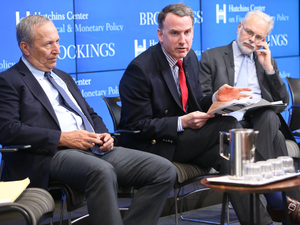AI is Changing How Bay Area Investors Make Money

Photo by Zulfugar Karimov on Unsplash
A new trend is emerging among Bay Area tech professionals: using artificial intelligence to guide investment strategies. Young investors like Harpaul Sambhi and Daniel Padilla are experimenting with ChatGPT and other AI platforms to identify potentially lucrative stocks, challenging traditional wealth management approaches.
Sambhi, a startup founder from Marin, conducted an intriguing experiment by asking ChatGPT to recommend companies driving the AI technology boom. Using AI-suggested stocks like Nvidia and Taiwan Semiconductor Manufacturing Company, he created a portfolio that delivered a 35% return - impressive, but slightly trailing his human wealth manager’s 40% gains.
Similarly, Padilla, a San Francisco finance graduate, turned to AI out of curiosity about technological disruption. By querying multiple chatbots, he constructed investment portfolios focusing on AI-driven companies. His AI-guided investments showed remarkable performance, with portfolios gaining 49-52% since March, compared to the S&P 500’s 22% rise.
However, financial experts urge caution. UC Berkeley professor Yaniv Konchitchki warns that AI recommendations lack a true “information edge” and might simply repackage existing market consensus. There are potential risks, including synchronized investor behavior that could trigger market volatility.
A recent Intuit Credit Karma survey reveals that two-thirds of adults have sought financial advice from generative AI, with younger generations like Gen Z and Millennials being particularly enthusiastic. Interestingly, while 80% of those acting on AI advice reported improvement, over half acknowledged making potentially poor financial decisions.
Researchers also discovered potential bias in AI investment recommendations, which tend to reflect investment preferences of young, high-income men. However, providing demographic information can help chatbots generate more personalized advice.
Despite the exciting potential, both Sambhi and Padilla view AI as a supplementary tool rather than a complete investment strategy. They continue to maintain traditional investment approaches, recognizing that AI recommendations should be carefully evaluated and not blindly followed.
AUTHOR: rjv
SOURCE: SF Standard


















































